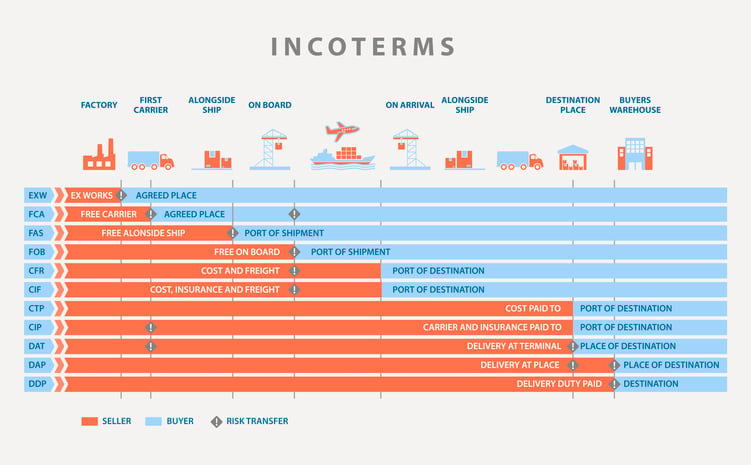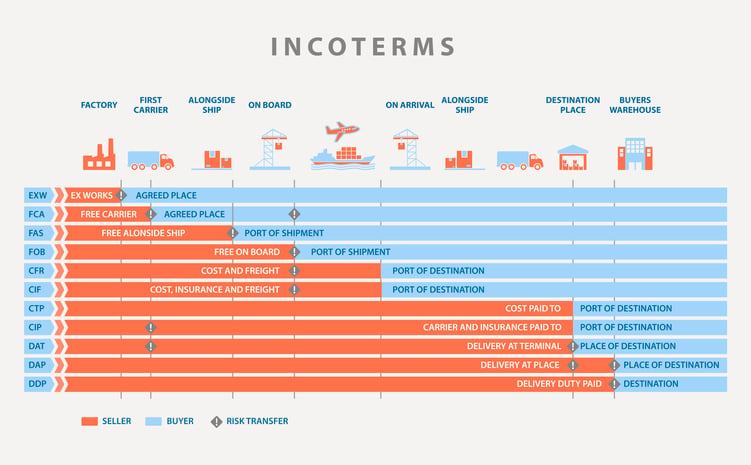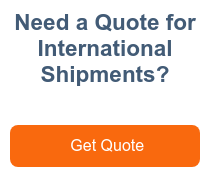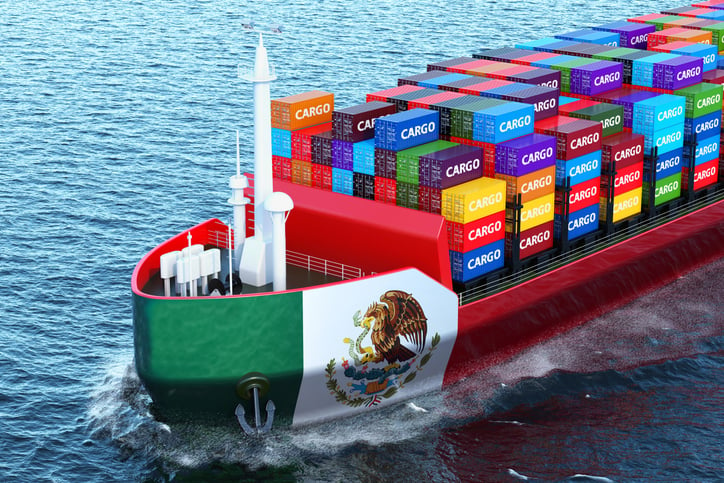In today's global economy, international trade is necessary for many businesses. Importing and exporting goods from one country to another can bring about many challenges. One of the biggest hurdles is navigating the complex world of trade agreements, regulations, and logistics. This is where Incoterms come in. This article will explore what Incoterms are, their significance in international trade, and strategies for effectively using them when trading internationally.
What Are Incoterms?

Incoterms (short for International Commercial Terms) document a set of standardized rules established by the International Chamber of Commerce (ICC) that define the obligations, risks, and costs involved in the transportation and delivery of goods between buyers and sellers. They provide a common language and framework for importers and exporters to communicate and agree upon the terms of their transactions.
Incoterms apply to any mode of transport and are updated periodically to reflect changes in international trade practices. The latest version, Incoterms 2020, includes 11 terms, each with a unique set of responsibilities and obligations for the buyer and seller. Some of the most commonly used Incoterms include FOB (Free on Board), CIF (Cost, Insurance and Freight), and EXW (Ex Works).
Incoterms Definition and Significance in International Trade
The Incoterms definition specifies the roles and responsibilities of the buyer and seller in an international transaction. The terms cover aspects such as the point at which delivery is deemed to have taken place, who is responsible for arranging and paying for transport and insurance, and who bears the risk of loss or damage to the goods during transit.
The significance of Incoterms is found in their ability to provide clarity and consistency in communication between importers and exporters. By agreeing upon a specific set of terms, both parties can avoid misunderstandings and disputes that may arise from differences in legal and trade practices between countries.
Furthermore, understanding Incoterms can help businesses make more informed decisions when it comes to negotiating prices and managing risk. For instance, a seller may choose to use a more favorable Incoterm to increase their chances of securing a sale, while a buyer may prefer an Incoterm that reduces their risk and overall cost.
Strategies for Using Incoterms Effectively
To use Incoterms effectively, businesses must have a clear understanding of their rights and obligations under each term. This includes factors such as the place of delivery, mode of transport, and the point at which risk and responsibility pass from the seller to the buyer.
One of the key strategies for using Incoterms effectively is to ensure that they are clearly defined in the sales contract. This should include a detailed description of the goods, the agreed-upon price, and the specific Incoterm being used.
It is also essential to choose the right Incoterm based on the nature of the goods being traded, the shipping method, and the level of risk involved. For instance, if the goods are high-value and require special handling, it may be better to use a more comprehensive Incoterm such as CIF, which includes insurance coverage.
Another important consideration is to work with reliable and experienced partners, such as freight forwarders and customs brokers, who can help navigate the complex logistics involved in international trade. These partners can provide valuable insights into local regulations and trade practices, ensuring that businesses comply with all legal requirements and avoid costly delays or penalties.
With years of experience in the industry and a strong network of shipping providers, we have the expertise and resources to help you navigate the complexities of international trade. We can help you negotiate the best plan for your needs, providing customized solutions that meet your unique requirements.







-1.png)